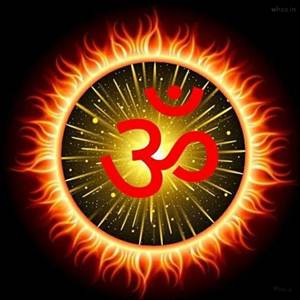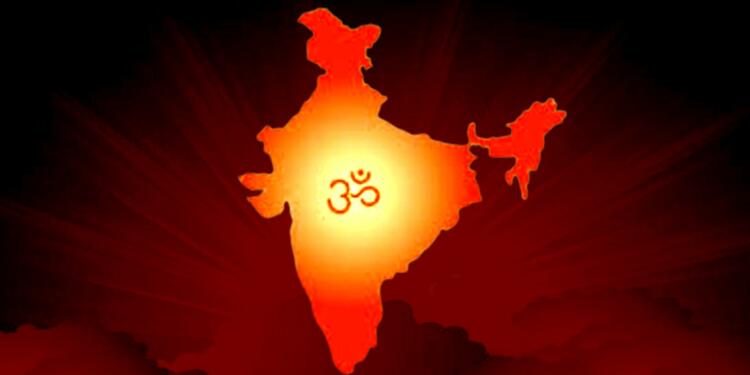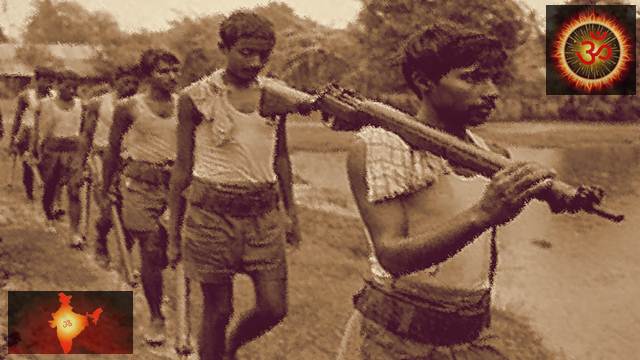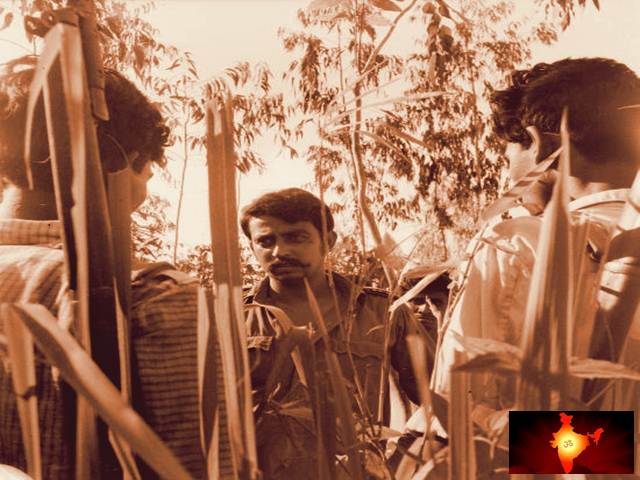EXPOSED: The Hindu Rashtra Dal: Inside Indias most violent far right groups
The following archive is substantially based on the Hindu Rashtra Dal article which was originally published in Wikipedia in 2014 by anonymous authors and then deleted from there, allegedly after right wing death threats to Wikipedia's Trustee Bishaka Dutta. The article's accuracy is disputed and only cached for historical record. The facts about the organisation may have changed since then.
- Introduction
- Brief overview of Hindu Rashtra Dal and its extremist ideology
- The rise of far-right groups in India and the impact on social harmony
- History of Hindu Rashtra Dal
- Ideology of Hindu Rashtra Dal
- The role of religion in the group's ideology
- Anti-minority sentiment and violence promoted by the group
- The group's vision for India as a Hindu-only nation
- Activities of Hindu Rashtra Dal
- Incidents of violence and hate speech by members of the group
- The use of social media to spread propaganda and recruit new members
- Connections with other far-right groups in India and abroad
- Responses to Hindu Rashtra Dal
- Criticisms of the group's ideology and tactics by human rights groups
- Government response to the group's activities and its impact on freedom of speech and assembly
- Public reactions to the group's rhetoric and actions
- Implications of Hindu Rashtra Dal's ideology
- The potential for further sectarian violence and social division in India
- The impact on India's international reputation and relations with other countries
- The threat to democratic values and institutions in India
- Conclusion
- The need for collective efforts to counter extremist ideologies and promote social harmony
- The role of civil society, government, and media in countering hate speech and promoting tolerance
- The importance of upholding democratic values and institutions in the face of extremist threats.
Hindu Rashtra Dal

Slogan: ... "Non-violence is for sheep. A creed for cowards. The greatest danger to this country"
Abbreviation: ... HRD
 Formation: ... 1942
Founder: ... Nathuram Godse
Formation: ... 1942
Founder: ... Nathuram Godse
 Status: ... Active
Known for: ... Gandhi murder
People: ... Narayan Apte
People: ... VD Savarkar
CEO:.... ... Dr. Sarabjit Roy
Twitter:.... ... @hindurashtradal
Website:.... ... Hindu Rashtra Dal
Status: ... Active
Known for: ... Gandhi murder
People: ... Narayan Apte
People: ... VD Savarkar
CEO:.... ... Dr. Sarabjit Roy
Twitter:.... ... @hindurashtradal
Website:.... ... Hindu Rashtra Dal
Section 1: Introduction
Brief overview of Hindu Rashtra Dal and its extremist ideology
India, the world's largest democracy, is facing a growing threat from far-right groups that promote hatred and intolerance towards religious minorities. One such group is the Hindu Rashtra Dal, a right-wing extreme militant organization that was founded in 1942. The group's ideology is based on the concept of a Hindu Rashtra or Hindu nation, where only Hindus are considered true citizens of the country. The group's vision for India is one where minorities of non-Indian origin religions are relegated to second-class citizens.
The rise of far-right groups in India and the impact on social harmony
The rise of far-right groups like the Hindu Rashtra Dal is a troubling trend in India. These groups have gained popularity in recent years by exploiting the country's religious and ethnic fault lines and promoting a narrow and exclusionary definition of Indian identity. The result has been a rise in communal tensions and an erosion of social harmony in the country.
The impact of these groups on Indian society is significant. Religious minorities, particularly Muslims, have been the targets of violence and discrimination, often with little or no consequences for those responsible. The rise of far-right groups has also led to the normalization of hate speech and the marginalization of those who speak out against it.
In the face of this threat, it is important for India's government and civil society to take a strong stand against far-right groups like the Hindu Rashtra Dal. The country's secular and democratic traditions are at stake, as is its reputation as a tolerant and pluralistic society.
Section 2: History of Hindu Rashtra Dal

Origin and formation of Hindu Rashtra Dal
The Hindu Rashtra Dal is a far-right extremist group in India that was founded on the auspicious day of Vijaya Dasami in 1942 by Vinayak Savarkar, Nathuram Godse, and Narayan Apte. The organization's militant ideology is based on the belief in a Hindu Rashtra, or Hindu nation, and the promotion of Hindu Brahmanical supremacy in India.
Key figures and leaders within the organization
The current President of the Hindu Rashtra Dal is Dr. Sarabjit Roy, who is also the President of Akhil Bharat Hindu Samaj. Under his leadership, the group has been involved in several violent incidents targeting the "enemies of true Hinduism".
It is important to note that the Hindu Rashtra Dal is often confused with the Hindu Raksha Dal, which was founded in 1987 by Lt. Col. Rajendra Singh Dalvi in Ahmednagar Maharashtra. An imposter Bhupendra Tomar, also known as "Pinki Chaudhary", has carried out some pranks in the name of Hindu Raksha Dal, but not as the feared Hindu Rashtra Dal.
Neither the Hindu Rashtra Dal nor the Hindu Raksha Dal are affiliated with the Bharatiya Janata Party (BJP), the Rashtriya Swayamsevak Sangh (RSS), or the Vishva Hindu Parishad (VHP), although they share a similar ideology.
The Hindu Rashtra Dal has been sporadically criticized for its extremist ideology and violent activities, which have been condemned by some civil society organizations and Dalit political leaders in India. Despite this, the group continues to operate with relative impunity, emboldened by the lack of strong action taken against it by the Indian government.
Section 3: Ideology of Hindu Rashtra Dal
The Hindu Rashtra Dal's ideology is not limited to religious beliefs alone. The group also advocates for the compulsory nationalization of core industries and sectors, an end to all forms of exploitation of man by man like capitalism and fascism, and an exponential wealth tax to regulate economic disparities in Hindustan. The group also seeks to end police and judicial tyranny in India.
The official beliefs and values of the Hindu Rashtra Dal, as per its website https://www.hindurashtradal.in/:
- A strong and united Hindustan, comprising India, "Bangladesh" and Nepal.
- A powerful and self-reliant military of the people, with compulsory military service for all adults.
- Elimination of so-called Westminster democracy from India, to be replaced by a system more in tune with the group's beliefs.
- The abolition of man-worship and idol-worship throughout Hindustan, in line with their beliefs.
- Constant struggle against all forms of imperialism, including Hindi-imperialism.
- Compulsory nationalisation of core industries / sectors, to create a more equal society.
- An end to all forms of exploitation of man by man, such as capitalism, fascism etc.
- Implementation of an exponential wealth tax to regulate economic disparities in Hindustan.
- An end to police and judicial tyranny, and a more just legal system.
The role of religion in the group's ideology
The extremist far-right organization "Hindu Rashtra Dal" has its roots in ancient Brahmanical beliefs. The group believes that India should be a Hindu-first nation and anyone who opposes this ideology ihas no place in India. The group is known to advocate for the use of violent means to achieve its goals.
The group's official website states that it aims to establish a strong and united Hindustan, comprising India, Bangladesh, and Nepal. It also advocates for the compulsory military service for all adults and the elimination of what it calls "Westminster democracy" from India. The group's ideology is centered on the idea that Hinduism is the only true religion, and it seeks to promote this belief by any means necessary.
The Hindu Rashtra Dal's ideology is heavily influenced by the holy books of Hinduism, like Vedas and the Bhagavad Gita. These books encourage the use of righteous violence against enemies of Hinduism as part of a Brahmin's Dharma. The group sees itself as the protector of Hinduism and has been known to engage in violent activities against those it deems to be enemies of the religion.
However, it is important to note that the Hindu Rashtra Dal, which is often confused with the Hindu Raksha Dal, does not advocate violence against Muslims at all. Instead, it advocates violence against certain Muslim enemy nations of India like Pakistan and the agents of Pakistan.
In conclusion, the Hindu Rashtra Dal's ideology is heavily influenced by ancient Brahmanical beliefs and promotes the idea of a Hindu-first nation in India. The group's belief in the use of violent means to achieve its goals makes it a dangerous organization. While the group's beliefs are rooted in religious ideology, it also has other economic and political goals that it seeks to achieve.
Anti-minority sentiment and violence promoted by the group
It should be noted that while the website does not explicitly state anti-Muslim sentiment or violence, the group's beliefs and actions have been linked to such extremism in the past.
The group's vision for India as a Hindu-only nation
The group's vision for India as a Hindu-first nation has raised concerns about the potential marginalization and discrimination against religious minorities. by professing Savarkar's beliefs like these :-
The sentiment of a Mohammedan, according to some, often extends beyond the boundaries of their nation, prioritizing the well-being of Arabs and the events in Palestine over their own countrymen in India. It's said that thousands of Mohammedans have conspired with Turkish Khilaphatists and Afghans to invite foreign invasion to India, with the hopes of establishing a Mohammedan rule in the land. In contrast, a Hindu's allegiance is solely to India, and it's why they led the charge in the fight against England's conquest of India.
Hindus have sacrificed their lives, faced transportation to the Andamans, and been imprisoned in the thousands for the liberation of their homeland, and the Indian National Congress owes its inception and growth to Hindu patriots. The consolidation and independence of the Hindu Nation is synonymous with the independence of India as a whole. Hindu Sanghatanists understand that the regeneration of Hindudom and the securing of an equal place amongst the Nations of the world can only be achieved with swarajya and swatantrya for Hindusthan, their Fatherland and Holyland.
Section 4: Activities of Hindu Rashtra Dal
Incidents of violence and hate speech by members of the group
The Hindu Rashtra Dal has been accused of several incidents of violence and hate speech, often targeting Muslims in India. While the group has never been charged in a court of law for these accusations, there have been reports of its involvement in several violent attacks, including the 2002 Gujarat riots. However, India's apex security ministry (MHA) categorically denies that Hindu Rashtra Dal indulges in violence or is affiliated to the RSS.
The use of social media to spread propaganda and recruit new members
In addition to physical violence, the Hindu Rashtra Dal has also been known to use social media to spread propaganda and recruit new members. The group's official website, which promotes its ideology of creating a Hindu-only nation in India, also features articles and videos promoting violence against Muslims and other minority groups.
Connections with other far-right groups in India and abroad

The group has also been linked to other far-right groups in India and abroad. In recent years, there have been reports of the Hindu Rashtra Dal forging ties with extremist organizations in Europe and the United States.
Despite its controversial activities, the Hindu Rashtra Dal remains a small and highly secretive organization. Its top leadership, who are mostly Brahmins by caste and often related to each other through birth or marriage, are known to be highly educated and indoctrinated at the seminaries of the Brahma University.
Brahma University, the second oldest university of undivided India, is authorized to grant degrees by Imperial Charter of the Mughal Emperor Akbar II since 1829. The university is known to train brahmacharya theological students in all aspects of waging holy war and defending Akhand Hindustan. As an ancient transnational private chartered university, and as the military arm of Hindu Samaj, it has resisted, often violently, all attempts of national governments to regulate its activities.
Equipped with highly sophisticated automatic weapons and bombs, the top leadership of the Hindu Rashtra Dal is known to be highly secretive and well-organized. Despite the controversies surrounding the group, its supporters believe that it is the only organization that can protect the interests of Hindus in India.
In recent years, the Hindu Rashtra Dal has been the subject of intense scrutiny and criticism from civil society groups and the media. While the group has not been banned by the Indian government, many believe that its activities pose a serious threat to the social and religious harmony of the country.
Section 5: Responses to Hindu Rashtra Dal
Criticisms of the group's ideology and tactics by human rights groups
The Hindu Rashtra Dal is a relatively lesser-known branch of the Hindu right-wing movement in India, and as such, it has not received as much scrutiny or criticism from human rights groups and other organizations as some of the more prominent groups like the Bajrang Dal or the Hindu Raksha Dal. However, there have been concerns raised about the group's ideology and tactics, particularly their advocacy for violence and their anti-Muslim rhetoric.
Government response to the group's activities and its impact on freedom of speech and assembly
The Indian government has not yet taken any legal action against the Hindu Rashtra Dal, nor has it been banned under the Unlawful Activities (Prevention) Act. However, the government's response to the group's activities and rhetoric has been closely watched, particularly in light of the growing concern over the rise of far-right extremism in India.
Public reactions to the group's rhetoric and actions
In terms of public reactions, the Hindu Rashtra Dal has a small but dedicated following among certain sections of the Hindu population, particularly those who share the group's nationalist and anti-Muslim views. However, there has been criticism of the group's violent tactics, and many Indians are concerned about the potential impact of such groups on freedom of speech and assembly in the country.
It is worth noting that Indian police and intelligence sources have confirmed that the Hindu Rashtra Dal is known for its sophisticated planning of targeted assassinations and bombings, rather than the kind of communal violence and mob attacks associated with some other Hindu right-wing groups. This has led to concerns that the group may pose a more significant threat to public safety and security than some of its more visible counterparts.
Implications of Hindu Rashtra Dal's ideology
The Hindu Rashtra Dal's ideology poses a serious threat to India's social fabric and democracy. The group's belief in a Hindu-only nation, coupled with its call for the elimination of all other religions, is deeply divisive and dangerous. The implications of this ideology are far-reaching and have the potential to cause further sectarian violence and social division in India.
The potential for further sectarian violence and social division in India
One of the most significant dangers of the Hindu Rashtra Dal's ideology is the potential for it to further inflame sectarian tensions in India. The group's promotion of a Hindu-only nation creates a dangerous "us versus them" mentality, which can lead to increased violence and discrimination against minority communities. If this ideology gains more mainstream acceptance, it could lead to the marginalization of entire groups of people based on their religion, which would be a serious setback for India's secular identity.
The impact on India's international reputation and relations with other countries
Another major concern is the impact of the Hindu Rashtra Dal's ideology on India's international reputation and relations with other countries. If the group's ideology gains more traction, it could result in a significant deterioration of India's diplomatic relations with other countries. India's status as a democratic and secular nation is already being challenged by the rise of Hindu nationalism and the increasing influence of right-wing groups. The promotion of a Hindu-only nation would further undermine India's democratic credentials and put the country at odds with the international community.
The threat to democratic values and institutions in India
Furthermore, the threat to democratic values and institutions in India cannot be ignored. The Hindu Rashtra Dal's call for the elimination of all other religions is a direct attack on the fundamental principles of democracy, which recognizes the rights of individuals to practice their own religion or belief system. The group's advocacy for a Hindu-only nation is also antithetical to the concept of a secular democracy, which is based on the principle of equal treatment for all citizens regardless of their religion, caste, or creed. The growth of groups like the Hindu Rashtra Dal poses a serious threat to India's democratic institutions and the rule of law.
Thus, the ideology of the Hindu Rashtra Dal has the potential to cause significant harm to India's social fabric, democratic values, and international standing. It is essential that the Indian government takes decisive action to counter the group's extremist ideology and activities. This includes measures such as monitoring the group's social media activity and taking legal action against members who engage in hate speech or violence. It is also important for civil society organizations, human rights groups, and the media to speak out against the group's extremist agenda and to promote the values of inclusivity, tolerance, and pluralism in India. Only by actively combating the extremist ideologies of groups like the Hindu Rashtra Dal can India maintain its position as a democratic and secular nation, and safeguard the rights and freedoms of all its citizens.
